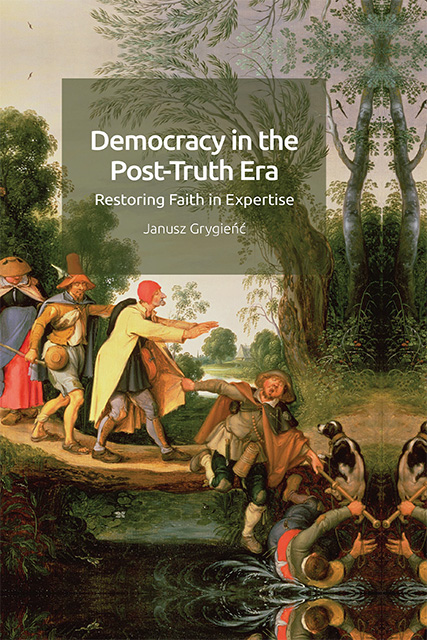Book contents
- Frontmatter
- Contents
- List of Tables
- Acknowledgements
- Introduction: Post-Truth and the Dawn of Illiberal Democracy
- Chapter 1 Expertise in Liberal Political Theory: Problems and Discrepancies
- Chapter 2 Expertise: Promises, Perils and Limitations
- Chapter 3 Laymen, Experts and Epistemic Dependence
- Chapter 4 Epistemic Dependence and Political Theory: Dependence Changes Everything
- Chapter 5 Inclusive Epistocracy, Competence and Popular Rule
- Epilogue: Living in a World of Too High Expectations
- Bibliography
- Index
Chapter 3 - Laymen, Experts and Epistemic Dependence
Published online by Cambridge University Press: 18 October 2023
- Frontmatter
- Contents
- List of Tables
- Acknowledgements
- Introduction: Post-Truth and the Dawn of Illiberal Democracy
- Chapter 1 Expertise in Liberal Political Theory: Problems and Discrepancies
- Chapter 2 Expertise: Promises, Perils and Limitations
- Chapter 3 Laymen, Experts and Epistemic Dependence
- Chapter 4 Epistemic Dependence and Political Theory: Dependence Changes Everything
- Chapter 5 Inclusive Epistocracy, Competence and Popular Rule
- Epilogue: Living in a World of Too High Expectations
- Bibliography
- Index
Summary
Every day we put blind faith in people. We trust those who manufactured and sold us our alarm clock that it will ring on time, that our smartphone will not give us a brain tumour, and that our car will not suddenly swerve out of control. We believe that our gas stove will not explode and that we are the only ones with a set of keys to our house; that the bus driver will show up to work on time and drive us to the place where the timetable says he or she is going; that the taxi driver will not cheat us; and that the people on the street will not lynch us unprovoked, or even if provoked. From the moment we feel some kind of pain all the way until we start treatment we make dozens of leaps of faith. First, we make a choice of whether to trust conventional or alternative medicine. Then, we decide if we have more trust in public or private healthcare providers. Then, which particular doctor we will go see. Finally, we decide if we will put our faith in the prescribed therapy and the efficacy of the prescribed medicines. Every day we make hundreds if not thousands of leaps of faith for which we have no immediately available reasons. We trust complete strangers so often and so blindly that we do not even notice it. Trust is the foundation of society. This social role of trust has been discussed by sociologists and political scientists, including Piotr Sztompka, Russell Hardin, Francis Fukuyama and Charles Tilly. They have analysed the role of rumour in social life, how we read social expectations off indirect cues and how we subtly sound the beliefs of others, including the way we come to share those beliefs. We trust (or do not trust) the way votes are counted in an election, those who adjudicate the validity of a vote, or public opinion polls. Trust or lack thereof is the reason why social and political systems endure or collapse. It is what sparks revolutions and, often, what extinguishes them. It is the reason why social, political or economic reforms fail. Trust is the basis of the legitimacy of any political system, including liberal democracy, significantly lowering its operational costs.
- Type
- Chapter
- Information
- Democracy in the Post-Truth EraRestoring Faith in Expertise, pp. 74 - 104Publisher: Edinburgh University PressPrint publication year: 2023



